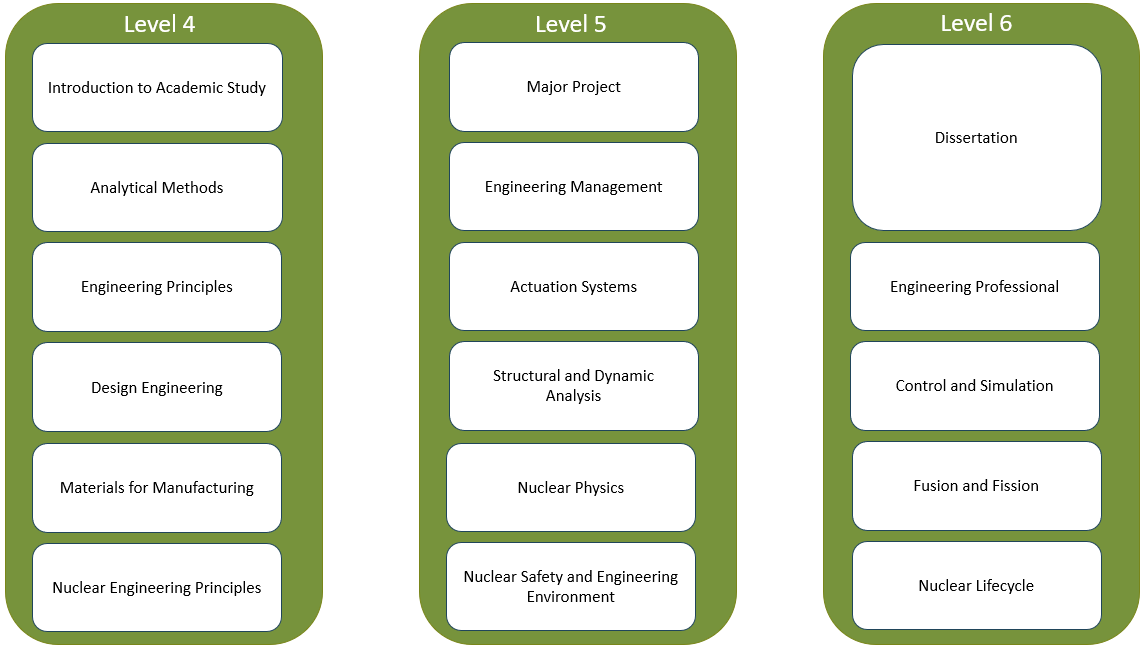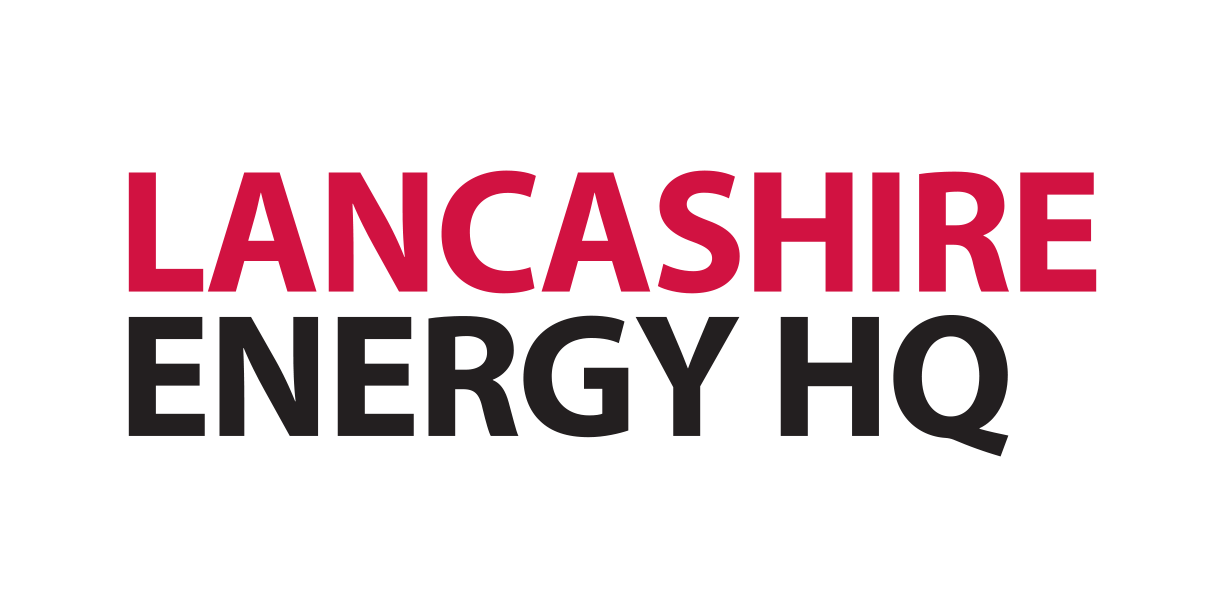In response to the needs of industry partners, BAE Systems, Westinghouse and Office for Nuclear Regulation, the BEng (Hons) in Nuclear Engineering has been designed to support and complement these requirements, allowing our graduates to be best placed as engineers of the future within advanced technology sectors.
The course explores the multi-disciplinary engineering approaches and technical competences covering, nuclear principles, engineering principles, engineering and project management, and nuclear physics.
You will also be inspired by innovative nuclear technologies and challenges and have access to our engineering and software simulation facilities that will embed the concepts of Nuclear Engineering. This provides you with the academic expertise, safety critical appreciation, practical training and sector recognition you will need to progress in your role.
Modules

Entry Requirements
The normal entry criteria at level 4 of this degree is five GCSE’s at Grade 4 or above, (or equivalent Level 2 qualifications), including English, Mathematics and a Science subject PLUS a minimum of 48 UCAS points (excluding functional skills) from one of the following:
- Two A Levels (or equivalent), to include mathematics and a technology, engineering or a science based subject.
- A National Certificate, Diploma or Extended Diploma (or equivalent) in a science or technology based subject, including merits in mathematics.
If English is not the candidates first language, an IELTS score of at least 6.0 with a minimum of 5.5 in all skills is also required.
Note: Mature candidates and applicants who have alternative equivalent qualifications or can demonstrate relevant industrial experience will be interviewed on an individual basis to determine suitability for the programme.
Applicants must also be employed within an appropriate setting/sector. Your employer will be able to offset the tuition fees associated with this programme against the Apprenticeship Levy; they should seek financial guidance on this through professional services.
Equipment Requirements
You will be required to provide your own stationary and scientific or graphical calculator. You will also require regular access to a PC with internet access to complete independent study via Canvas and Teams.
Learning Resources are provided on-site and free for students to use Monday to Saturday at both our Bispham Campus and University Centre.
Other equipment during your course may include personal protective equipment for workshops, such as boots, gloves and overalls. Guidance as to what specific equipment is required will be provided in advance of your workshop.
It is recommended that students join a Professional Engineering Institution as a student member, with a small associated cost.
Accreditation
This degree has been accredited by the Institute of Engineering and Technology (IET) under licence from the UK regulator, the Engineering Council. Accreditation is a mark of assurance that the degree meets the standards set by the Engineering Council in the UK Standard for Professional Engineering Competence (UK-SPEC).
An accredited degree will provide you with some or all of the underpinning knowledge, understanding and skills for eventual registration as an Incorporated (IEng) or Chartered Engineer (CEng). Some employers recruit preferentially from accredited degrees, and an accredited degree is likely to be recognised by other countries that are signatories to international accords.








